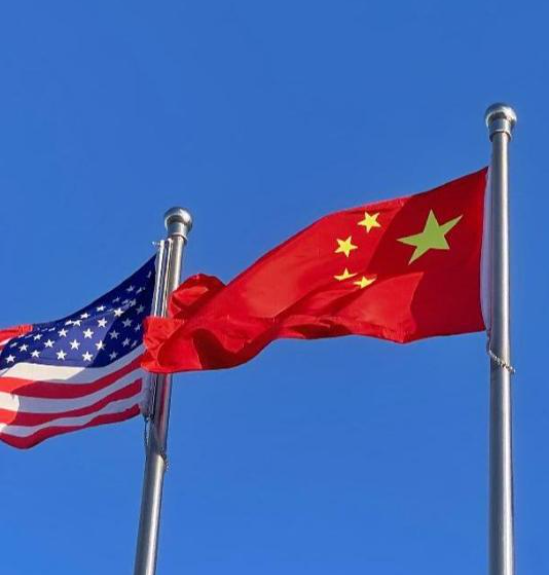Author: Prof. Engr. Zamir Ahmed Awan, Founding Chair GSRRA, Sinologist, Diplomat, Editor, Analyst, Consultant, Advisor, and Non-Resident Fellow of CCG. (E-mail: awanzamir@yahoo.com).
As the U.S. gears up for a new presidential term under Donald Trump, many are speculating on what this shift will mean for America’s relations with China. Trump’s earlier term from 2016 to 2020 and Joe Biden’s subsequent administration from 2020 to 2024 took markedly different approaches to China—one emphasizing tariffs and economic decoupling, the other balancing competition with cautious engagement. Now, as Trump prepares to assume office again, his approach to China seems poised for a blend of pragmatism and restraint, informed by his four years outside the White House.
Trump’s First Term vs. Biden’s Approach
In his first term, Trump pursued an aggressive trade war with China, imposing tariffs and seeking to diminish American reliance on Chinese manufacturing. His administration consistently confronted China over trade imbalances, intellectual property rights, and geopolitical issues. Biden, while maintaining competitive stances in technology and defense, tempered Trump's sharp tone, working with allies to balance China’s influence rather than going it alone. He ganged up with his allies and harmed Chinese interests severely. He exercised all tactics of cold war ear and bullied China.
A Calmer, More Calculated Approach?
Out of office since 2021, Trump’s experience may have granted him a broader perspective on global dynamics and the limits of unilateral action. Trump’s campaign rhetoric suggests he might be rethinking his earlier, confrontational stance toward China. This does not imply he will ignore critical issues with China but rather that he may emphasize economic negotiations over outright economic warfare. His focus seems to be moving toward creating favorable trade conditions for the U.S., potentially using private sector connections, such as his alliance with Elon Musk, who maintains ties with Chinese business leaders. This cooperative approach might make for a more stable Sino-U.S. relationship, with room for business-friendly policies and less risk of escalation.
Domestic and Foreign Policy Priorities
On the domestic front, Trump has been vocal about his commitment to revitalizing the U.S. economy and tackling illegal immigration, issues that defined his first presidency and continue to resonate with his base. We can expect him to advocate for tax cuts, incentives for domestic manufacturing, and stricter immigration policies designed to protect American jobs and resources. His “America First” approach may also drive stricter visa regulations, prioritizing skilled workers who can bolster the economy.
Internationally, Trump’s focus seems twofold: ending or de-escalating ongoing conflicts and negotiating strategic partnerships. He has hinted at winding down U.S. support for Ukraine to encourage a diplomatic solution, signaling a potential pivot from Biden's more robust backing of Ukraine. This could reduce the burden on American taxpayers while encouraging European allies to play a more prominent role.
Trump’s approach toward Iran will likely combine economic sanctions with diplomatic pressure. He may opt for containment over direct confrontation, avoiding the risks of military entanglement. In the Middle East, his support for Israel is unwavering, but he is likely to seek a ceasefire and push for stability. Strengthening alliances with oil-rich nations, like Saudi Arabia, could further his goal of securing energy interests while maintaining regional balance.
Pragmatic Engagement with China
Though Trump is expected to keep an eye on China’s expanding influence, his renewed pragmatism could temper his approach. He may focus on securing more equitable trade agreements, addressing trade deficits, and ensuring China respects intellectual property rights. Taiwan is likely to remain a sensitive topic, but Trump could negotiate with Taiwan for financial contributions in return for defense support, emphasizing economic benefits while avoiding unnecessary escalation with China.
An important new element in Trump’s approach could be his collaboration with high-profile business figures like Elon Musk, who has strong Chinese connections and business interests. Musk’s ties with Chinese officials could provide an indirect bridge for Trump, offering a channel for dialogue and economic negotiation, perhaps shifting Sino-U.S. relations into a period of cautious cooperation rather than open conflict.
On Taiwan issue, he might reduce arms sales to Taiwan or aske high price. Even, with NATO ha might demand for more funds against providing protection.
U.S.-Pakistan Relations: A Different Approach
Trump’s foreign policy might also take a softer stance toward Pakistan than Biden's. While Biden’s administration pressured Pakistan on counterterrorism and human rights issues, Trump may adopt a less interventionist approach, seeing Pakistan as a strategic ally rather than an adversary. This shift could open up new channels for economic and diplomatic collaboration, benefiting both countries without coercive demands or confrontational tactics.
A New Tone, But Familiar Goals
Trump’s restrained victory speech after the election signals a more tempered, balanced perspective. His years outside of power appear to have cultivated a strategic patience that could define his approach to domestic and international affairs. Trump seems prepared to lead with a calm, seasoned hand, focusing on economic growth and diplomatic engagement rather than military solutions.
This newfound maturity does not imply a weak stance on core issues. Trump's “America First” ideology remains intact, but his strategies could lean toward shrewder, more nuanced negotiations. Under his leadership, there’s hope for avoiding new conflicts while striving to resolve ongoing ones, creating a global environment where U.S. interests are preserved, yet peace is prioritized.
He will try to undo some of Biden’s decisions and may introduce his policies different from Biden’s, even opposite to Biden’s. His out look for the geopolitics are very different then Biden, and one should expect a visible change soon.
If Trump fulfills this vision, he could steer the U.S.-China relationship toward constructive competition rather than outright confrontation. His renewed focus on economic growth, cautious engagement, and peaceful resolutions could bring about an era where, despite inevitable tensions, cooperation and stability are possible between these two global superpowers.
(ASIA PACIFIC DAILY)
